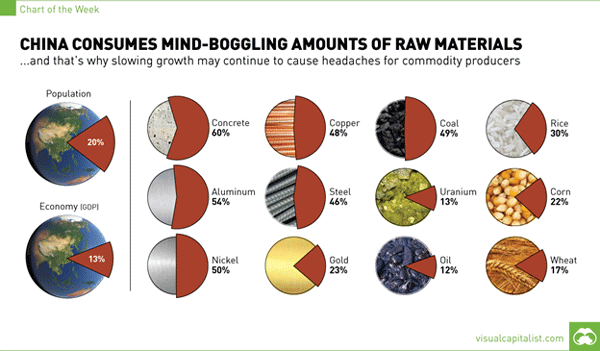If we don’t understand both sides of China’s balance sheet, we understand neither.
– Michael Pettis
The most thought-provoking China analyst I know is Michael Pettis, author and economist, who is a professor at Peking University’s Guanghua School of Management as well as a rock music club owner and impresario. Conversations with Michael are always fascinating.
He has a fairly balanced take on China’s future, which is significantly different from most of what you read. That’s because he comes at understanding China’s problems in terms of balance sheets rather than macroeconomics. So five years ago he was telling us there was going to be a real debt problem in China because he understood the nature of balance sheets and China’s balance sheet portended further growth.
In his latest blog, which is today’s OTB, he ventures rather deep in the weeds in order to understand how of China’s balance sheet problems are now going to constrain its potential future growth. Let me quote the first few paragraphs:
With so much happening in China in the past month it seems that there are a number of very specific topics that any essay on China should focus. I worry, however, that we get so caught up staring at strange clumps of trees that we risk losing sight of the forest. What happened in July this year, and again in August, or in June 2013, or a number of other times, were not unexpected shocks and game changers. China is a dynamic and unbalanced economic system entering into something that we might grandly call a “phase shift”, or less grandly the rebalancing process, and that it is doing so with a great deal of debt structured in a highly inverted way. Anyone who sees China this way would have been able to predict not so much the specific shocks, panics, and credit crunches that we have experienced, but rather that we would of necessity experience a series of very similar shocks.
These debt-related shocks will occur regularly for many more years, and each shock will advance or retard the rebalancing process so that it a"ects the way future shocks occur. There are only a few broad paths along which the Chinese economy can rebalance, and if we can get some sense of the China’s institutional constraints and balance sheet structures, we can figure what these paths are and how likely we are to slip from one to another.
In order to get China right I would argue that above all we must understand the dynamics of debt, and of balance sheet structures more generally.
A China that slows down to “only” 3 to 4% growth is a China that buys materially less resources from around the world. My friend Barry Ritholtz published the following chart, which shows the amounts of raw materials that China buys as a percentage of world production. If debt fueled growth built around infrastructure and increasing capacity slows down, which if Michael is right it must, that is going to have significant impact on the prices of raw materials and on the stocks of those who sell them.

Let me issue a bit of a warning: the last month or so the essays in Outside the Box have been relatively brief and pretty easy to grasp, I think. This one is not in that vein. You will need to don your thinking cap on and focus a bit more than is normal for an Outside the Box.
While everybody gives lip service to how important China is, if you understand the underlying dynamics, China’s significance is even more impressive. My team at Mauldin Economics has created a very professional documentary on China, which you can register to watch for free right here.
I, along with a sizable portion of the American electorate, spent Wednesday evening watching the Republican primary debate, to see who would be the next candidate voted off the island. Who knew primary debates would morph into reality TV? I am absolutely fascinated by the process. And while the Republican Party holds my focus, I have to admit that what is developing for the Democratic Party is almost as intriguing. Next year’s presidential election is shaping up to be a surprise.
Continue reading: http://www.mauldineconomics.com/outsidethebox/global-imbalances-and-the-chinese-economy
